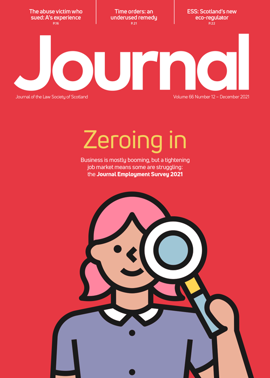Passivhaus – the golden ticket to net zero?
“Make homes so energy efficient that they don't need heating, urges MSP” was one of the recent headlines in the STV News. Alex Rowley, Labour MSP, is consulting on plans for a member's bill to require all new-build homes to meet the stringent “Passivhaus Standard”.
With buildings accounting for 35% of global energy consumption, building design and efficiency are increasingly the focus of efforts to reduce carbon emissions. Designing buildings in accordance with the Passivhaus Standard, an international energy performance standard developed in Germany in the 1990s, is an approach to building design which promises world-leading energy efficiency and thermal performance.
The renewed focus on net zero carbon emissions, brought into prominence by COP26 in Glasgow, coupled with the UK's recent energy crisis could be the catalyst for the Passivhaus Standard to gain increased traction in the UK construction and housebuilding industry.
Buildings designed to the Passivhaus Standard adopt an “efficiency first” approach which can be critical for new buildings to meet carbon targets. The buildings are constructed, ventilated and insulated in such a way that they require very little heating, instead retaining heat from passive sources such as the sun, building occupants and appliances. At the core of the Passivhaus philosophy is effective insulation which results in less energy being required.
Build or retrofit
The construction methods which can be adopted to meet the Passivhaus Standard commonly include:
- triple glazed windows;
- airtightness levels around 20% more than a standard building;
- mechanical ventilation; and
- high levels of thermal insulation.
To achieve Passivhaus certification, projects are subject to a compliance process and the building design must be signed off by an independent certifier. The Passivhaus Standard is not limited to new buildings: older buildings can be retrofitted, though the performance of retrofitted buildings is unlikely to mirror that of a newly constructed Passivhaus building, and the Passivhaus Institute has a separate certification that recognises appropriate retrofitting works.
Growing adoption
Passivhaus is not a new concept; it has been around for 30+ years. Adopting Passivhaus has been the exception rather than the rule when it comes to building standards in the UK. Adoption rates since its inception have historically tended to be higher in Germany and Scandinavia.
It is clear that Passivhaus is now making its way onto the agenda both in the public and private sectors, in the UK. We have recently seen some notable Passivhaus developments coming to market. For example, our projects team have recently provided advice on Scotland's first Passivhaus nursery school project, a pathfinder project for the Scottish Government, and is currently advising on the country's first Passivhaus primary and secondary school projects. Recent examples in housebuilding include the development of 36 Passivhaus Standard social housing units in Glasgow, and permission granted for further Passivhaus housing developments in the Trossachs and Dundee.
With calls being made during COP26 to require all new houses in Scotland and in the UK to meet the Passivhaus Standard, we are likely to see the increase in Passivhaus projects continue and accelerate. If the UK is to meet its ambitious net zero targets, local and national government, housebuilders, housing associations and other key stakeholders must collaborate to pave the way and play their part in tackling the climate crisis. The Passivhaus Standard has a part to play in their success.
Regulars
Perspectives
Features
Briefings
- Criminal court: OLRS – life means life
- Corporate: Will a deal impact on national security?
- Intellectual property: IP and AI – the latest
- Agriculture: Securing successor crofting tenant status
- Succession: Back of an envelope – testamentary intent?
- Scottish Solicitors' Discipline Tribunal
- Data protection: Google off the hook
- Property: Beautifully presented tedium
- In-house: Lawyers in uniform
In practice
- Your Law Society of Scotland Council members
- Legal services regulation reform – have your say
- The Word of Gold: Whither goest thou?
- Coaching: help in a fast changing world
- The earlier the better
- Family mediation accreditation: a view from the panel
- The Eternal Optimist: Just to say thanks…
- Appreciation: Albert Vincent Sheehan
- Ask Ash: A broken work circle






